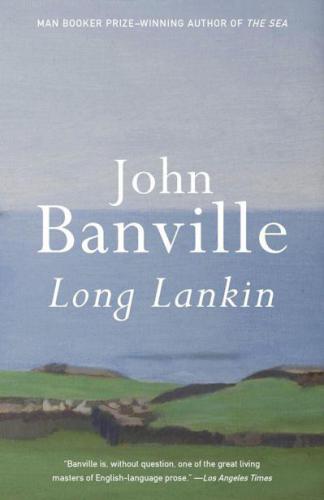
Long Lankin
Stories
کتاب های مرتبط
- اطلاعات
- نقد و بررسی
- دیدگاه کاربران
نقد و بررسی

July 1, 2013
Two boys hide out in the woods, a girl meets a mysterious man on a bicycle, and siblings sneak down to the sea to look at a dead body in this slim collection of early stories from Banville (Booker Prize winner for The Sea). Nearly every story features two or three characters in a single scenario and the stripped-down prose often means to emphasize what's happening between the lines. Common themes arise: death, innocence lost, and insanity are prominently featured. The latter is the centerpiece of Long Lankin's best (and final) story, "De Rerum Natura", which begins with an old man seeing acrobats in his garden. Over the course of the story, the language frays and reality blurs, so much so that it begins to affect the old man's son and his wife, who are trying to take him away to a home. Often the stories are too brief and too restrained to make more than a passing impression, but this story represents how good Long Lankin is at its best: when the writing lets go of its rigidity and opacity and Banville loosens up, he possesses a rare command of language.

May 15, 2013
First American publication of a collection of very early, very short stories by the Irish master of the literary novel. Since a slightly different version of this volume was issued in Britain in 1970, Banville has earned much greater renown as a prize-winning novelist (The Sea, 2005, etc.) and has subsequently won a popular readership through a series of detective novels as Benjamin Black (Christine Falls, 2007, etc.). The seeds of both branches of his fiction can be found in these elliptical, elemental stories. Though there are only hints of the more lyrical prose that would subsequently dazzle admirers (while seeming overwritten to detractors), the sea and the solitude it affords were plainly a preoccupation early on. And there's some mystery at the heart of practically every one of these stories--an unexplained relationship or situation, an inscrutable murder (in more than one story), a dilemma not completely understood yet requiring escape. The Banville of his early 20s could write dialogue like this from "Lovers": "We'll be free. We're young and the world is wide. We'll be free." Yet he already knows that such freedom is an illusion, an empty promise. And more often, his characters find themselves lamenting the passing of old ways, such as the stranger who seems oddly familiar to a son mourning his father in "A Death": "There is a new brand of despair in the world. The old ways are dying, and the old religion too. When people turn their backs on God what can they expect?" Other stories have similarly elemental titles--"Sanctuary," "Summer Voices," "Island"--and similar obsessions with transition and loss. "Look it at," says the drunken host at a party of friends he doesn't like. "The new Ireland. Sitting around at the end of a party wondering why we're not happy. Trying to find what it is we've lost." Formative work by an author who would later revisit what's best in these stories through longer and more ambitious fiction.
COPYRIGHT(2013) Kirkus Reviews, ALL RIGHTS RESERVED.

























دیدگاه کاربران